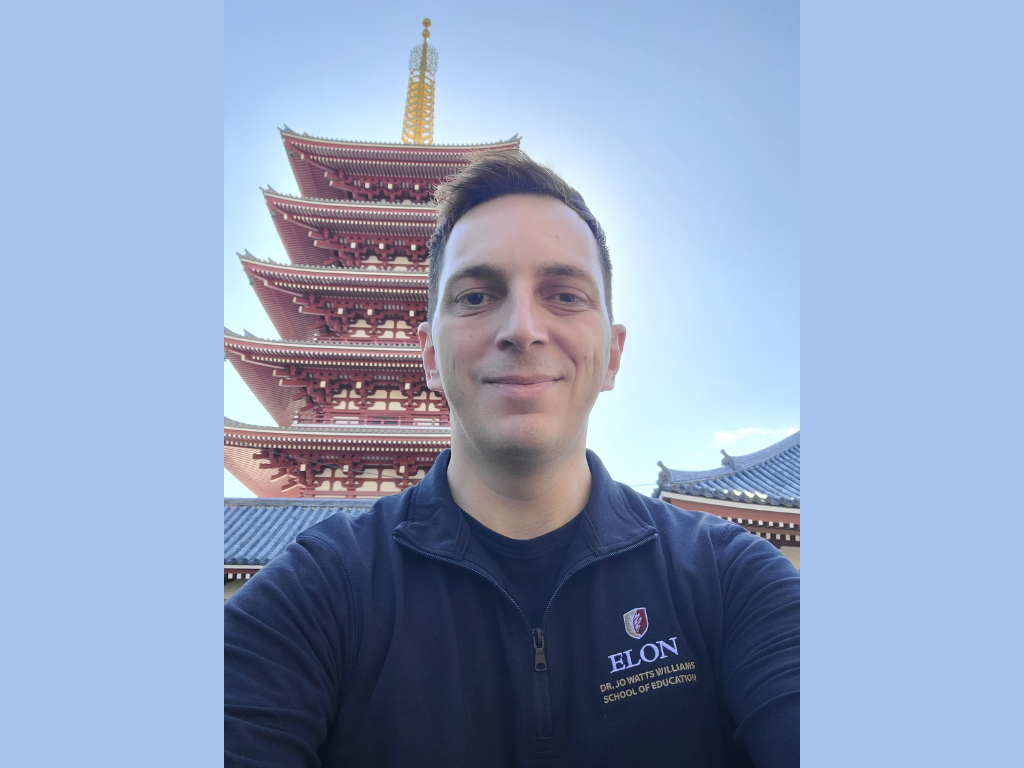The 16th Asian Conference on Education (ACE2024), held in partnership with the IAFOR Research Centre at the Osaka School of International Public Policy (OSIPP), took place in Tokyo, Japan, from Nov. 25 to Nov. 29.
Nermin Vehabovic, assistant professor of education in the Dr. Jo Watts Williams School of Education, recently presented at the 16th Asian Conference on Education (ACE2024) held at the Toshi Center Hotel in Tokyo, Japan. The conference, held in partnership with the IAFOR Research Centre at the Osaka School of International Public Policy (OSIPP), took place from Nov. 25 to Nov. 29, and brought together academics and scholars across national and disciplinary borders “with the goal of generating new knowledge and understanding, forging and expanding new international, intercultural and interdisciplinary research networks and partnerships.”
The IAFOR Research Centre fosters connections between people and ideas through diverse events and platforms, championing and highlighting the value of interdisciplinary study. The organization remains actively involved in global, cross-sectoral initiatives, collaborating with prominent universities, think tanks, research institutions such as the East-West Center, The Center for Higher Education Research and The World Intellectual Property Organization, as well as government and international organizations such as the government of Japan through the Prime Minister’s Office and the United Nations in New York. The organization also partners with leading media entities, including “The Wall Street Journal,” “JWT,” and HarperCollins, on various projects.
In an individual paper session focused on language development and literacy, Vehabovic’s presentation, titled, “Traversing Languages and Literacies: Fostering Care, Dignity, and Healing Across University-Community Initiatives Serving Children, Youth, and Families from Refugee Backgrounds,” illuminated the ways in which teacher candidates were able to acknowledge and honor the broad range of languages and literacies that occur in homes and across culturally and linguistically diverse communities. Specifically, reading and writing emerged as historically responsive literacies among teacher candidates and multi/translingual children, youth and families from refugee backgrounds, engaging them in ways that fostered identity, skill development, criticality, intellectual growth and joy. These findings are based on two years of ethnographic data collection—including fieldwork, written and digital reflections, audio recorded shared reading sessions, and impromptu interviews.
“It was really exciting to witness a well-attended session and interest in this important work that situates community and global engagement,” Vehabovic said. “I also served as the chair of the session. This opportunity enabled me to be in community with other presenters and attendees from countries such as Australia, Cameroon, Malaysia, Spain, and Thailand.”
This participation highlights Vehabovic’s dedication to the field of literacy education, particularly in fostering community and global connections, while also emphasizing the university’s commitment to inclusive and impactful research that serves multi/translingual children, youth and families in Alamance County and extends beyond.
Funding for the research was made possible through a faculty research grant from the Center for Research on Global Engagement (CRGE) and two Community Partnerships Initiative (CPI) grants from the Kernodle Center for Civic Life.



